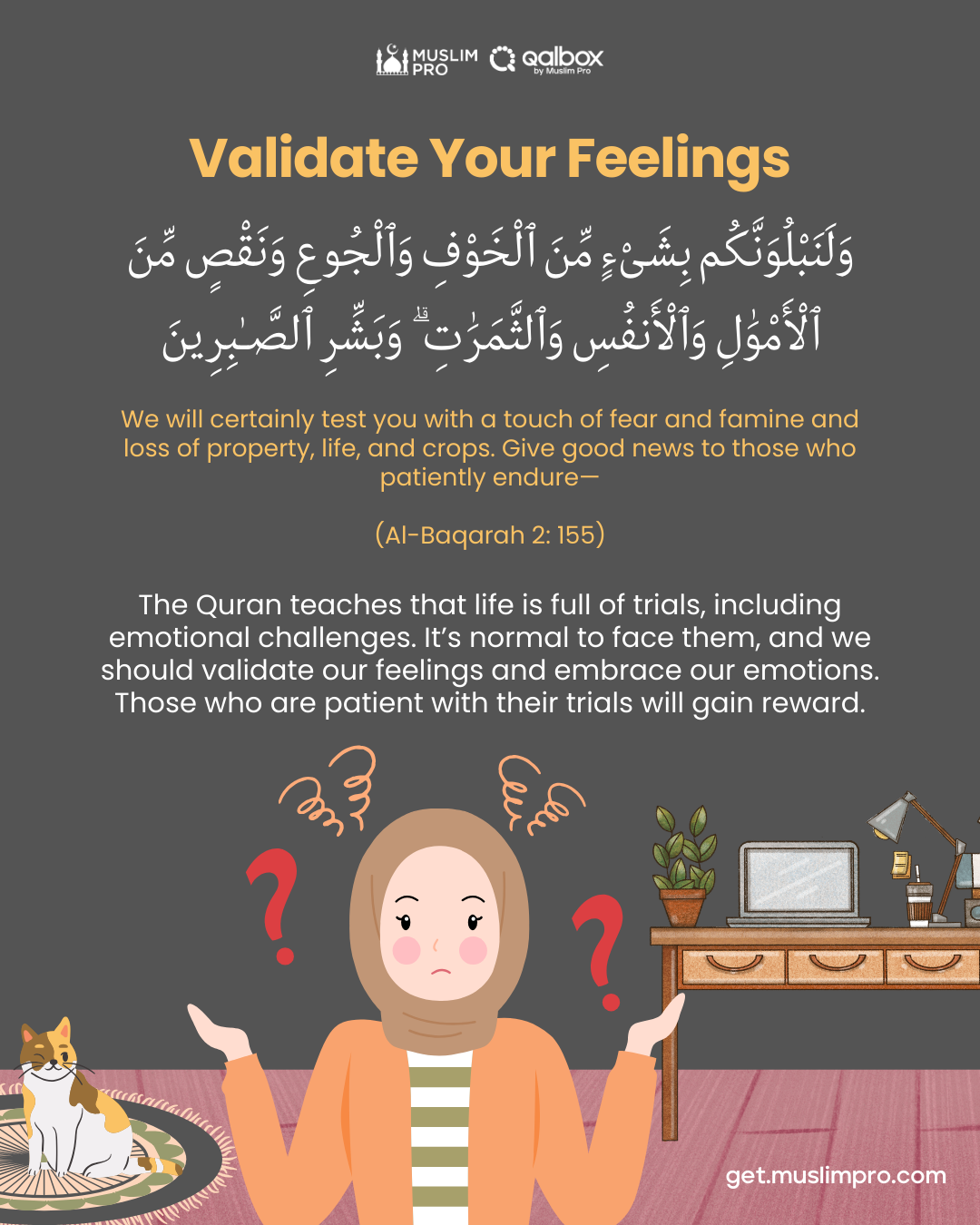Physical Address
304 North Cardinal St.
Dorchester Center, MA 02124
Physical Address
304 North Cardinal St.
Dorchester Center, MA 02124

Islam and Mental Health. Have you ever wondered how Islam actually views mental health? Amidst the hustle and bustle of modern life, mental health is often overlooked. In fact, Islam, as a comprehensive religion, pays great attention to the well-being of the whole person – body and mind. We often focus on physical worship, but what about our mental health? Well, this article will discuss what Islam has to say about mental health, providing a refreshing and calming perspective.
وَلَنَبْلُوَنَّكُمْ بِشَيْءٍ مِّنَ الْخَوْفِ وَالْجُوْعِ وَنَقْصٍ مِّنَ الْاَمْوَالِ وَالْاَنْفُسِ وَالثَّمَرٰتِۗ وَبَشِّرِ الصّٰبِرِيْنَ ١٥٥
wa lanabluwannakum bisyai’im minal-khaufi wal-jû‘i wa naqshim minal-amwâli wal-anfusi wats-tsamarât, wa basysyirish-shâbirîn
“We will surely test you with something of fear and hunger and a loss of wealth and lives and fruits, but give good tidings to the patient.” (QS. Al-Baqarah (2): 155)
The Quran makes it clear that our earthly lives will be filled with trials. Every individual will face their own set of tests, including emotional challenges. Fear, anxiety, worry, and concern are some of these emotions highlighted in the verse above.
Sadness, anxiety, and worry are natural emotions experienced to some degree by all humans. Even Prophets, special creations of Allah, felt these emotions. There are valuable lessons in the Quranic stories of the Prophets.
Islam emphasises a balanced life. It’s not just about prayer, fasting and zakat, but also about maintaining our physical and mental health. Imagine our body as a complex machine. If one of its parts has a problem, the machine will not run optimally. The same goes for our well-being; poor mental health can hinder our worship and life as a whole. Islam teaches us to look after the whole person, and that includes looking after our mental health.
Stress and anxiety, two modern enemies that often haunt us. But, Islam provides effective solutions. One of them is prayer. Prayer is not just a ritual, but also a powerful spiritual therapy to calm the heart and mind. Believe me, pouring out our hearts to Allah SWT can provide tremendous peace. In addition, reading the Quran can also be a panacea. Its soothing verses can provide inner peace and reduce anxiety.
Depression is a serious illness that requires professional treatment. Islam does not prohibit us from seeking medical help. Instead, Islam encourages us to always take care of our health and seek the best solution to our problems. If you are suffering from depression, do not hesitate to consult a doctor or psychologist. Remember, seeking help is not a sign of weakness, but rather a brave step towards recovery. Islam strongly emphasises the importance of supporting and helping each other, so don’t hesitate to ask your family, friends or the Muslim community for help.
Islam teaches us to live a balanced life. We should not focus too much on one thing and neglect others. Getting enough rest, eating a healthy diet, regular exercise, and socialising with positive people are all important for maintaining mental health. Managing our time wisely, avoiding too much stress, and doing hobbies we enjoy can also help us maintain a balanced life and reduce the risk of mental health problems.
Islam highly values the role of family and community in one’s life. A supportive family and community can be a strong bulwark against life’s challenges, including mental health issues. Mutual support, empathy ,and security are key in creating an environment conducive to mental health. Don’t hesitate to share your feelings and problems with those closest to you. They may be able to provide solutions or just the assistance you need.
Islam encourages us to always think positively and optimistically. Always remember the mercy and compassion of Allah SWT. Being grateful for the blessings we have been given, even in the midst of difficulties, is key to building a strong mentality. Focusing on positive things and avoiding negative thoughts can help us maintain mental health.
Islam does not prohibit us from utilising advances in science and technology, including in the field of mental health. If we are experiencing serious mental health issues, do not hesitate to seek professional help from a doctor or psychologist. They can provide the right diagnosis and appropriate therapy. Remember, seeking help is a sign of wisdom, not weakness. Islam encourages us to always seek the best solution for every problem we face.
Islam views mental health as an integral part of overall human well-being. Although it does not explicitly discuss the term ‘mental health’ as it does in the modern world, Islamic principles contain many teachings that are highly relevant to maintaining mental health. From maintaining a balanced life, prayer, gratitude, seeking support from family and community, to utilising medical advancements, it all shows that Islam cares deeply about the psychological well-being of its people. Hopefully, this article provides a better understanding of what does Islam say about mental health and helps us all to always take care of our mental health.